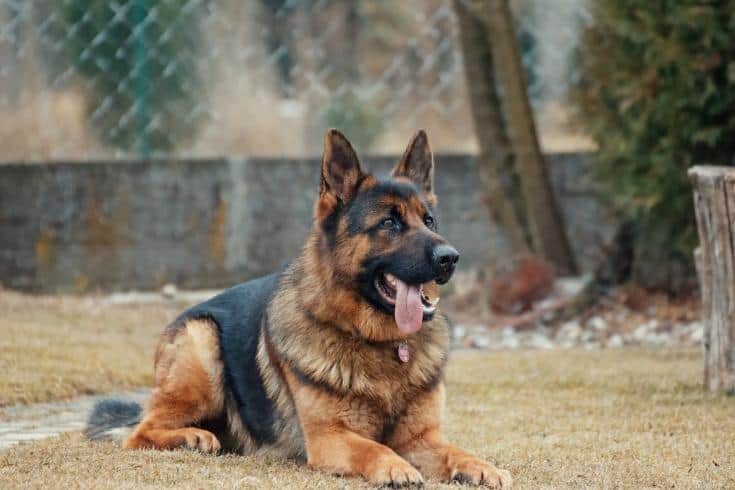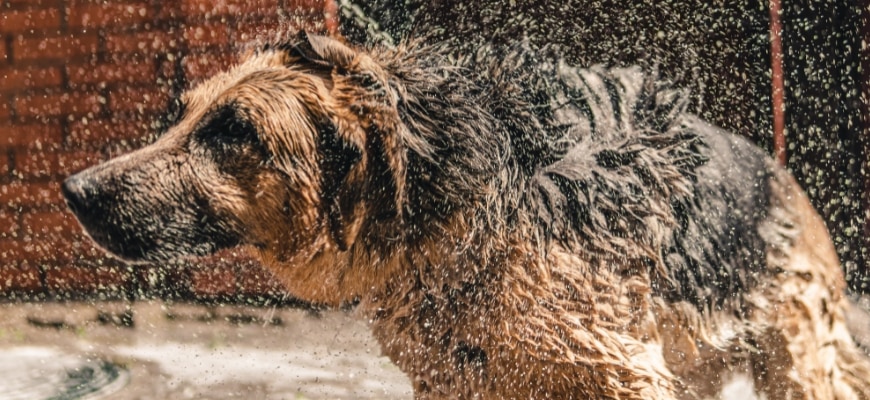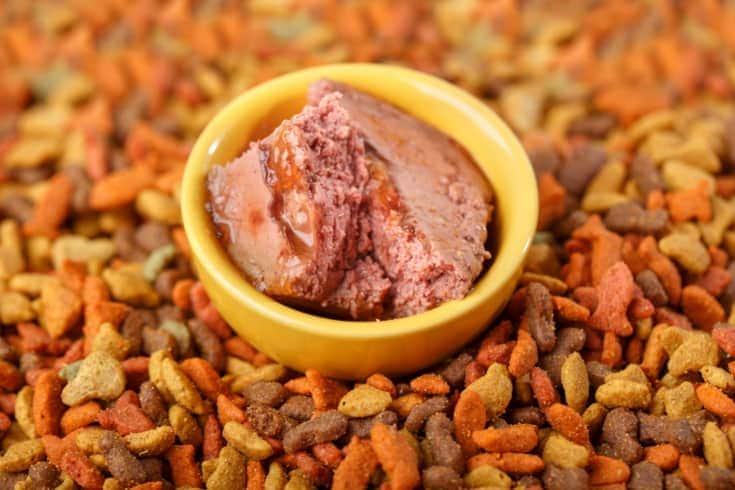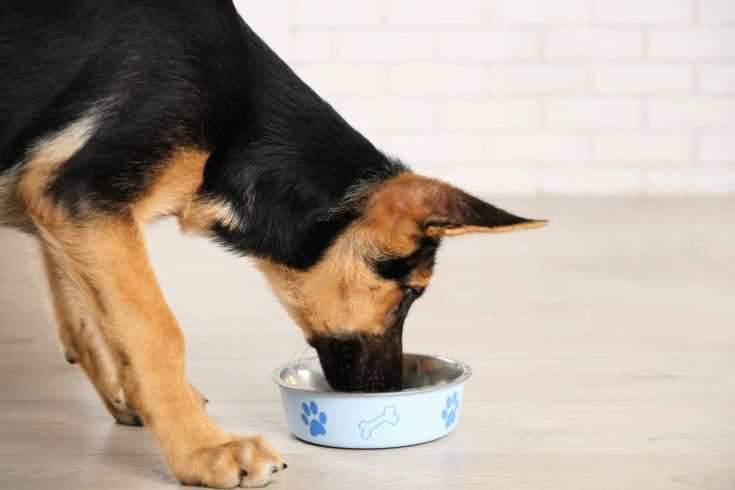Are you a German Shepherd owner who wishes they didn’t have such a bad smell? No judgment—we’ve all been there! That distinct “dog smell” can be enough to make any pet parent pull out their (figurative) hair. But don’t despair—with the right tips and tricks, you can manage those foul odors.
You’re wondering, though, do all German Shepherds stink? To a point, yes, as it depends on their lifestyle. So grab a treat for your four-legged friend (and a scented candle for yourself) and buckle up for some sniff-worthy advice about managing & reducing stinky dog smells. Let’s dive in!
Why German Shepherds Smell and How to Manage It

Let’s be real: dogs can stink! The GSD is a legendary breed known for their strength and loyalty, but sometimes their scent is less than desirable. From bad breath smells and funky smells to that distinctive dog smell, it often seems like GSDs are award winners in the art of stinking up a room.
The good news is that with a regular grooming routine such as bathing, brushing, and occasional visits to the groomers, you can take back control from your pup to manage those pesky odors. So don’t despair; it turns out there’s a solution for this age-old problem, so you don’t have to surrender your home to embarrassing “doggy stink” any longer!
Common Reasons Your GSD May Smell
From ear infections to dietary issues, there are all kinds of reasons your GSD may have a less-than-pleasant odor. If you’re desperate (or nose-blind) and can’t find the source of this disagreeable smell coming from your dog, it could be something as simple as them rolling in something smelly outside during a walk or getting a bath.
More commonly, though, skin folds around your GSD’s neck, tail area, and groin should be checked for trapped dirt that’s producing bacteria or yeast. Diet issues can cause issues with the skin. Allergic reactions, medical issues, and infections can also produce an unpleasant scent.
Having thick fur can sometimes exacerbate these effects as well, so regular brushing may help control any potential stink sources.
The following are some reasons your dog could be stinky!
- Sebaceous glands and surface oils
- Anal glands need to be expressed
- Overly dry skin causing infections
- Trapped dirt in skin folds
- Rolling in something smelly outside
- Not bathing regularly enough
- Ear infections
- Dietary issues
- Allergies or different skin infections
- Having thick fur and not brushing regularly
- Medical conditions
- Inflamed skin
Proper Grooming Tips for German Shepherds

If you want to make sure your German Shepherd looks as good as they’re destined to be, proper grooming is key! That means regular brushing, regular baths, and periodic nail clipping. But let’s face it, grooming can be time-consuming and sometimes stressful for you and your pup.
To make things easier, use a quality brush and have your pup get used to being groomed from an early age—the better the dog’s association with being brushed, the happier everyone will be.
Just remember to never rush through these activities; be gentle and use plenty of treats or verbal praise throughout the process so your pup knows it’s a job well done. And lastly, don’t forget to inspect your pup’s ears on a weekly basis to ensure they stay clean and healthy!
More tips for keeping your pup from being stinky:
- Bathe your dog regularly.
- Use hydrated skin dog & cat shampoo if possible, or soothing oatmeal shampoo.
- Brush their fur daily to prevent the buildup of debris/dirt.
- Trim excess fur and clean skin folds weekly.
- Check for ear infections, allergies, or other skin issues that could produce odors.
- Use quality brushes when grooming your pup.
- Get your pup used to be groomed from an early age.
- Be gentle while grooming; use treats or verbal praise as rewards.
I’ve owned two German Shepherd cross dogs, both of which could be super-stinky, especially right before they blew their coats in the spring and fall.
I found one surefire way to cut down on the pong was to spend an hour or so each day brushing my dog to shift as much of that loose, dead hair as possible. Now, that might sound a tad excessive, but it certainly worked!
Starting at the dog’s nose and working right down the body to the tip of the tail, I used a Furminator grooming tool to strip out the loose undercoat. That alone got rid of most of the greasy, smelly fur, allowing the new coat to come through unobstructed beneath.
Once the coat-blowing season ended, I put my dog’s bed and blankets in the washing machine for a freshen-up. Throughout the spring and summer, I hung the bedding material outside in the fresh air for an hour or so every day to air it, and a spritz of pet-friendly deodorizer finished the job!
Dietary Considerations for Reducing Dog Smells

Did you know that your dog’s diet can significantly impact a rancid-smelling pup? While regular baths are essential for keeping your pup clean and sweet-smelling (instead of that icky wet dog smell!), taking certain dietary considerations into account when there’s a bad diet can make all the difference.
For instance, feed your pet high-quality kibble with whole food ingredients in their daily diet to ensure they get plenty of vital vitamins and minerals and don’t have a poor diet.
Add probiotics to their food to regulate digestion and reduce any pungent gas that will clear the room. Ever heard of the phrase “garbage in, garbage out”? Well, it applies here too—if you don’t put good stuff in, your pup’s behavior will suffer, and they’ll get health issues. So ensure your dog is consuming some nutritious grub with each meal!
- Feed your pet high-quality kibble with whole food ingredients to ensure they get plenty of vital vitamins and minerals.
- Add probiotics to their food for better digestion and to reduce any pungent odors; these can be things like a homemade diet and staying away from a poor-quality diet.
- Make sure your dog is consuming nutritious grub or wet food with each meal.
- Avoid feeding them table scraps as these can often cause excessive gas.
- Include healthy fats in their diet, such as fish oil or coconut oil, which will help keep their coat shiny and skin healthy.
- Incorporate a variety of protein sources into their diet from both plant and animal sources.
By taking these dietary considerations into account, you can help keep your pup smelling sweet and looking great. Plus, they’ll be healthier and happier too! So don’t forget to incorporate lots of fresh ingredients into their meals to ensure they get the nutritious diet necessary to keep them going strong.
I found that adding a coat and skin supplement to my dog’s diet really helped to reduce the smell. Supplements containing Omega-3 and Omega-6 kept the pup’s skin supple and gave her a gorgeous shiny coat without that unpleasant doggy smell.

Conclusion
German Shepherds are beloved canine companions, but their larger size & thicker fur often lead to unpleasant odors. They don’t deserve a bad rap since we can manage their stinkiness with the right tools & insights. As revealed in this article, understanding why your pooch stinks & providing proper grooming could make all the difference.
We should also consider dietary considerations for maximum odor control! I hope I’ve given you all the information you need here!
Do you have a stinky pup? Let us know how you handle it in the comments below!
